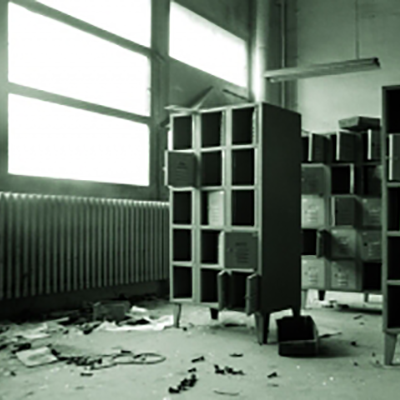Incerta glòria [Uncertain Glory], 1956
Nou Diccionari 62 de la literatura catalana (New Dictionary of Catalan Literature, Edicions 62); published in English as 'Uncertain Glory', 2002, American Institute for Catalan Studies, 2002
Winner of the 1955 Joanot Martorell Prize, this novel is divided into four parts around the central theme of the Spanish Civil War presented from the standpoint of the losers. This, however, is a book to which the author, Joan Sales, kept adding in its subsequent editions. Hence, the French translation (1962) of a longer version than the original Catalan one was very well received by critics who compared Sales with Dostoyevsky, Georges Berbanos, Graham Greene and others. The fourth edition (1971) was the definitive one. However, the last part, “Últimes Noticíes” (Latest News), which was also expanded, became an independent section in following editions, now with the title El vent de la nit (Night Wind).
Three friends who fight together in the war are the main characters of the first two parts, which are in epistolary form. Life on the Aragon front is presented in letters that Lluís writes to his brother, while conditions in the rearguard are described in letters from Trini, Lluís’s girlfriend, to Juli Soleràs. The last two parts consist of the reminiscences of Cruells, the third friend, a priest and, with El vent de la nit, they make a major leap in time to reflect the Barcelona of the post-war years until the end of the 1960s.
All this closely interwoven material conveys powerful energy in a supple colloquial style that also accommodates numerous literary references and reflects the complex intimacy of urban life in particular. The characters are magnificent creations in their genuineness and development because they start out as young men but change significantly as they grow older, with the exception of Soleràs, a kind of disturbing, lucid, prophetic Dostoyevskian hero, reflecting this world and yet a stranger in it too. Like real-life heroes he is the only one who dies young, defending his ideals.
However, in conjunction with the war, presented in all its rawness and free of Manichaeism, there is love embodied in two female figures who are given almost mythical proportions, especially Carlana. The novel, in fact, also reflects profoundly on the sense and especially the difficulty of life, which is only illuminated by love, human love and also divine love as represented by the true symbol of the cross. Moreover, Incerta glòria addresses other pivotal issues of existence, from the solitude of man to the passage of time, while presenting a mythically tinged portrayal of youth, this uncertain glory, fleeting glory, but still glory in the end. Starting out from a particular situation, this work unfolds until it becomes a universal reflection on dramatic times, an epoch marked by wars.
Copyright © 2000 Edicions 62




